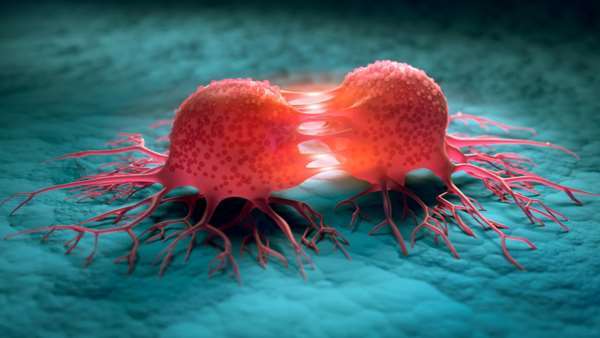How "paralyzed" immune cells can be reactivated against brain tumors
Brain tumor cells with a certain common mutation reprogram invading immune cells. This leads to the paralysis of the body's immune defense against the tumor in the brain.
Brain tumor cells with a certain common mutation reprogram invading immune cells. This leads to the paralysis of the body's immune defense against the tumor in the brain. Researchers from Heidelberg, Mannheim, and Freiburg discovered this mechanism and at the same time identified a way of reactivating the paralyzed immune system to fight the tumor. These results confirm that therapeutic vaccines or immunotherapies are more effective against brain tumors if active substances are simultaneously used to promote the suppressed immune system.
Diffuse gliomas are usually incurable brain tumors that spread in the brain and are difficult to completely remove by surgery. Chemotherapy and radiotherapy often only have a limited effect too. Oncologists are thus urgently trying to find innovative treatment approaches to fight the gliomas using the immune system - by means of therapeutic vaccines or immunotherapies.
Gliomas do not consist entirely of cancer cells: up to 50% of the tumor mass is made up of microglia cells - the brain's own phagocytes - and of macrophages that enter the tumor through the blood vessels. Macrophages are also scavenger cells, but they are not effective in fighting tumor cells.
"If we are to make progress in developing immunotherapies or therapeutic vaccines, we need to understand exactly how the immune environment behaves during tumor development. Moreover, we were interested in whether special genetic features of the gliomas have a particular influence on the function of the glioma-associated immune cells," explained Michael Platten, Director of the Department of Neurology of University Medicine Mannheim, Head of Division at the German Cancer Research Center (DKFZ), and director of the current study.
Scientists from Platten's division have now teamed up with Marco Prinz, Medical Director of the Institute of Neuropathology in Freiburg, and his working group to publish a molecular "status analysis" of the glioma-associated immune cells. To do so, they specifically studied the RNA and protein profiles of individual microglia cells and macrophages. Using tumor models in mice, they were also able to demonstrate the development of the immune environment over the course of the disease.
https://www.nature.com/articles/s43018-021-00201-z




ارسال به دوستان